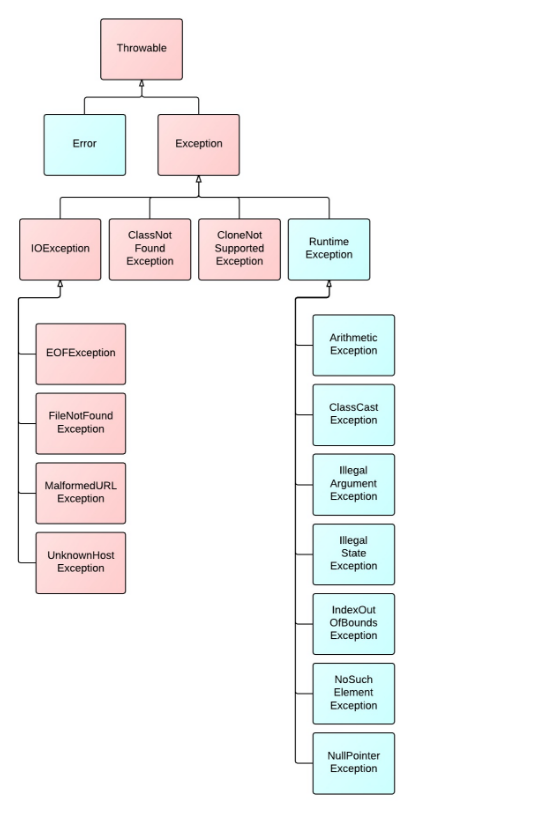1、如果抛出了异常,后面的 System.out.println() 语句是绝对不会执行
public class GreetingImpl implements Greeting {
@Override
public void sayHello(String name) throws Exception {
if (name == null) {
throw new Exception("The name is null.");
}
System.out.println("Hello! " + name); //绝对不会执行
}
}2、上文异常是从下往上抛的,在sayHello调用的地方catch
public class Client {
public static void main(String[] args) {
Greeting greeting = new GreetingImpl();
try {
greeting.sayHello(null);
} catch (Exception e) {
System.out.println("Error! Message: " + e.getMessage());
}
}
}3、Checked Exception(受检异常)
- 必须在try...catch
4、Unchecked Exception(非受检异常)
- RuntimeException :不用去catch,系统可以自己处理
public class GreetingImpl implements Greeting {
@Override
public void sayHello(String name) {
if (name == null) {
throw new RuntimeException("The name is null.");//////////非受检异常
}
System.out.println("Hello! " + name);
}
}5、异常结构
- 红色的是受检异常,蓝色的是非受检异常

6、自定义异常
7、借鉴 C/C++ 中的“错误代码”编程风格
public class GreetingImpl implements Greeting {
@Override
public int sayHello(String name) {
if (name == null) {
return 1; // Error: The name is null.
}
System.out.println("Hello! " + name);
return 0; // Success
}
}8、对于方法本身就需要返回值的情况:
- 返回值封装成 JavaBean
public class Result extends BaseBean {
private boolean success = true;
private int error = 0;
private Object data = null;
public Result(boolean success) {
this.success = success;
}
public Result data(Object data) {
this.data = data;
return this;
}
public Result error(int error) {
this.error = error;
return this;
}
...
}《《《《《《《《《《try...catch挺好的》》》》》》》》》》》》》》》》》》》》》